2016 Constructive Dissent and Exemplary Performance Award Recipients and Runners-Up
AFSA congratulates this year’s recipients of our awards for constructive dissent and exemplary performance!
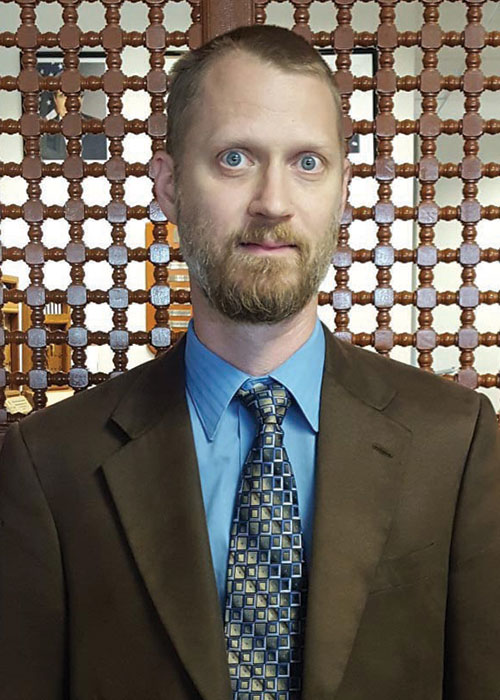
Jefferson Smith
U.S. Embassy Kuwait
William R. Rivkin Award for Constructive Dissent by a Mid-Career Officer
Jefferson Smith receives this year’s William R. Rivkin Award for Constructive Dissent by a Mid-Career Officer for his commitment to combatting unfair labor practices and his push for compensation reform for locally employed (LE) staff at posts in the Persian Gulf.
While posted to Kuwait, Management Counselor Smith observed that the nine embassies and consulates in the Persian Gulf region are staffed almost exclusively by third-country nationals (TCNs) who did not enjoy the rights of citizens and earned wages and benefits so low that they could not support their families. U.S. Embassy Kuwait employs more than 200 TCN men and women from 27 different nationalities—and employs no Kuwaitis because the U.S. government does not pay enough to attract them.
Mr. Smith gathered data, framed his arguments and then brought his views to a regional management officers’ conference, where he found allies and organized a regionwide approach. He then wrote a detailed, thoughtful cable to Washington, signed by the six regional ambassadors, proposing that the department should define a new standard for compensating its LE staff at posts employing a majority of TCNs in unfair labor markets.
In short, Mr. Smith challenged the department to lead—not just follow—local practice in these markets. All of his preparation and action had an effect: The under secretary for management approved a Public Interest Determination (a policy exception) to create housing and education allowances for LE staff, and moved U.S. Embassy Kuwait to the top of the list for the next tranche of wage increases. The result was an average 22-percent salary increase in addition to the new allowances.
Mr. Smith’s success in winning a more just compensation package for the LE staff of U.S. Embassy Kuwait was an important milestone that will serve as a model as he and others continue to fight for a more equitable way to compensate employees under these conditions.
Mr. Smith has served in Kuwait since 2014. As a management-coned Foreign Service officer, Mr. Smith has had opportunities to serve in consular, economic, political and management functions in four regional bureaus and six overseas assignments, including Kingston, Dar es Salaam (twice), Yaoundé, Dublin and Kuwait.
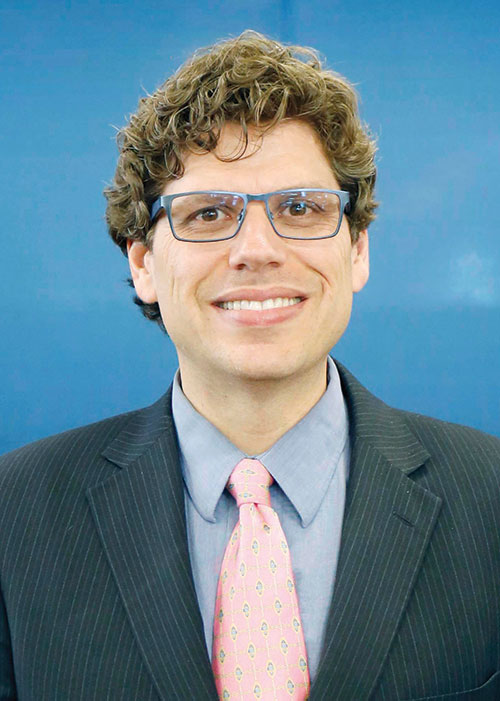
Michael Honigstein
U.S. Embassy Kabul
Mark Palmer Award for the Advancement of Democracy
Michael Honigstein is honored with this year’s Mark Palmer Award, recognizing those who have advanced democracy, freedom and governance through effective efforts throughout their careers. Mr. Honigstein was responsible for many important initiatives while serving in the State Department Bureau of International Organizations, and in subsequent overseas postings he worked fearlessly and constructively to protect those threatened by their country’s government.
As head of the Human Rights Unit in IO’s Office of Human Rights and Humanitarian Affairs, Mr. Honigstein implemented U.S. policy for the United Nations Human Rights Council and other multilateral human rights bodies. His accomplishments in that capacity include ensuring a special session on Syria when that crisis first erupted, making the UNHRC the first international body to engage there; laying the groundwork for the appointment of a special rapporteur on North Korea; ending the “defamation of religion” resolution that sought to restrict free speech under the guise of protecting religious sensibilities; establishing a special rapporteur for human rights in Iran; and drafting the resolution and leading the effort for a special session on the 2015 election in Cote d’Ivoire after the incumbent president refused to recognize the results.
During his recent assignment as head of the political section at U.S. Embassy Colombo, which covers both Sri Lanka and the Maldives, Mr. Honigstein worked to assist Sri Lanka in reconciliation efforts following its 30-year civil war, supported work towards a democratic transition in Maldives (since sadly under strain) and promoted human rights and democracy in both countries. In Sri Lanka, then-President Percy Mahendra Rajapaksa—widely assumed to be president for life—used the security forces to repress dissent, tightly controlled free speech and had already amended the constitution to remove term limits. Rajapaksa cloaked his actions in a narrative of ethnic nationalism promulgated by the controlled press, while any Sri Lankan who spoke out against him was threatened, “disappeared” or killed.
Recognizing that the Sri Lankan people were proud of their democratic traditions, Mr. Honigstein worked closely with the other sections and agencies at the embassy to develop a strategy to promote and protect a dialogue on democracy and to support human rights defenders willing to speak out at great personal risk. Realizing that the Sri Lankan government was hesitant to “disappear” contacts, he also worked to make sure the government knew that people under particular threat were meeting with the embassy.
Mr. Honigstein’s strategy also used embassy statements to create space for dialogue and protect that space. While the media would generally not report antigovernment stories, the government felt compelled to respond to public accusations by the United States; in so responding, they repeated the U.S. position and would inadvertently spark a national dialogue. The efforts were not without risk. Twice the Sri Lankan secretary of defense—leader of the repressive security apparatus, and a suspected war criminal—directly warned Mr. Honigstein to end his “regime change” activities.
On Jan. 9, 2015, in an election that surprised the world, President Rajapaksa lost his re-election bid to an opponent who ran on a platform of good governance, promoting democracy and protecting human rights.
Michael Honigstein currently heads the internal politics unit in U.S. Embassy Kabul’s political section, which covers the executive and legislative branches of the government and Afghanistan’s reconciliation efforts with the Taliban and other insurgents. He has also served as the peace process officer in Israel, where he worked on the Annapolis process, supported Special Envoy for Middle East Peace (SEMEP) Senator George Mitchell, and was a member of the Secretary of State’s Roadmap Monitoring Team. In addition, Mr. Honigstein worked on the crisis in Darfur in both Washington and Khartoum, and helped open the U.S. Consulate General—now Embassy—in Juba, South Sudan, where he supported implementation of the Comprehensive Peace Agreement.
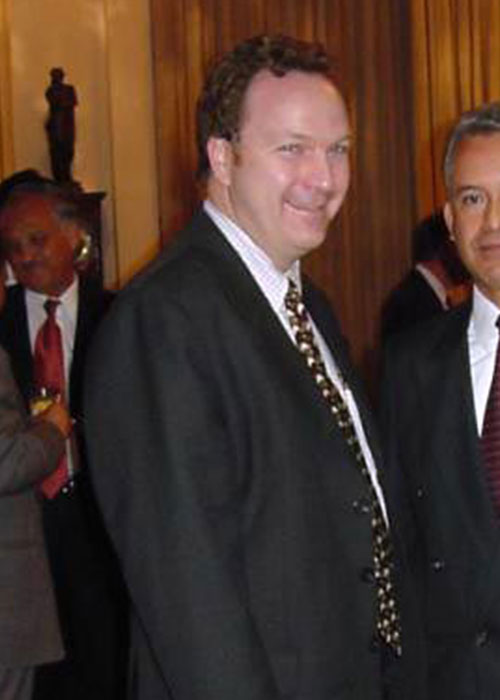
Steven Hendrix
USAID Mission Ghana
Mark Palmer Award for the Advancement of Democracy
Runner-Up
Steven Hendrix, a Foreign Service officer with the U.S. Agency for International Development and the runner-up for this year’s Mark Palmer Award for the Advancement of Democracy, has devoted his more than 25-year career to promoting democracy, good governance and institutional reform in Latin America, Africa, the Middle East, Asia and Europe. Mr. Hendrix has achieved many concrete democratization and development goals during his long career, which included postings as USAID assistant director in Paraguay, director for national capacity development in Iraq, democracy team leader in Nicaragua and justice program manager in Guatemala, as well as assignments in Washington on USAID’s Mexico and Central America desk.
His policy recommendations led to operational shifts in Peru and Bolivia in the mid-1990s—undercutting coca production by guerrillas in the former and providing legal employment alternatives to coca production for the poor in the latter. He advised on victims’ compensation and employment for former combatants during peace negotiations in El Salvador. He helped implement peace accords in Guatemala, leading a training program for new justices of the peace who went on to serve 118 communities, and facilitating creation of the Public Defense Institute, which served more than 20,000 poor Guatemalans in its first year. By defining “justice centers” in Guatemala, Mr. Hendrix helped to improve justice and legal services—in fact, his definition became a model for El Salvador, Mexico, Colombia and Panama.
From 2005 to 2007, Mr. Hendrix directed a comprehensive national electoral observation in Nicaragua and facilitated the approval of new criminal and criminal procedures codes. In Iraq in 2008 as USAID’s national capacity development director, he helped establish new professional, merit-based civil service programs for Iraq’s ministries. In this role, he oversaw the Oil Ministry’s privatization of giant oil fields, the largest and most transparent public procurement in history. As his colleagues have attested, Mr. Hendrix’s career has been one of dedication to the advancement of democracy, freedom and governance throughout the world.
Mr. Hendrix is currently deputy director for USAID in Ghana. Prior to this, he was the USAID program office director in Abuja, Nigeria, formulating U.S. strategy on corruption and Boko Haram.
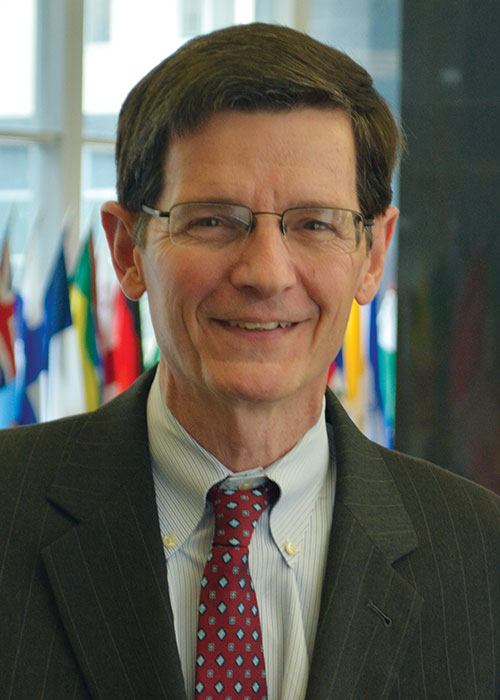
John K. Naland
Achievements and Contributions to the Association Award
John Naland is this year’s recipient of the award for achievements and contributions to AFSA. Mr. Naland served two separate terms as AFSA president (2001-2003 and 2007-2009). He also served as AFSA State Vice President from 1999 to 2001. His contributions during these critical periods in the history of AFSA and the Foreign Service were unique and significant.
Mr. Naland’s first term as AFSA president coincided with Secretary of State Colin Powell coming into office. Mr. Naland was a strong advocate for the need to grow and properly invest in training the Foreign Service. He was also a superb defender of the career and profession. His quiet diplomatic ability to boldly and clearly express on behalf of AFSA the needs of the Foreign Service was powerful and influential during this period.
Continuing these efforts during his second term as president, Mr. Naland also increased his focus on the Overseas Comparability Pay, or the pay equity gap for members of the Foreign Service that continued to grow. His consistent focus on this issue for AFSA made an enormous difference, and it was at the end of his term that the first tranche of funds needed to close the gap was appropriated. This, in turn, led to the second portion of the gap being closed, thus resulting in a 66-percent pay gap closure. It was a significant and historic victory for the AFSA membership.
During this same period, the situation in Iraq was at its most difficult for the Foreign Service. Mr. Naland was on the front lines of the debate, consistently standing up for the Foreign Service when some in Congress and the media suggested that the Foreign Service was unpatriotic, unwilling to serve or soft. One of his most remarkable contributions of integrity came when he announced that he would be leaving the AFSA presidency three months early to voluntarily serve as a provincial reconstruction team leader in Basrah, Iraq—away from his young family—in one of the more difficult areas. He truly led by example in doing this. The action drew positive attention from CNN and other media outlets.
Under John Naland’s stewardship, AFSA membership grew significantly and the association’s resources were protected. He presided over AFSA during a significant renovation of the headquarters building. As AFSA president, Mr. Naland contributed to the larger Foreign Service community with his strong writing ability. He was directly involved in developing seminal reports from the American Academy of Diplomacy and the Foreign Affairs Council and was a strong advocate for assisting outside organizations that serve the larger Foreign Service community. He supported the Association for Diplomatic Studies and Training and the Foreign Service Youth Foundation.
To his credit, Mr. Naland’s support for the FS community has continued after leaving AFSA. While serving as director of the Office of Retirement at the Department of State, he found ways to address issues he knew were of direct importance to AFSA members nearing retirement and in transition. He was always accessible and extremely well informed. His unassuming style and quiet demeanor are his strengths and, in fact, are personal qualities that deserve public acknowledgement.
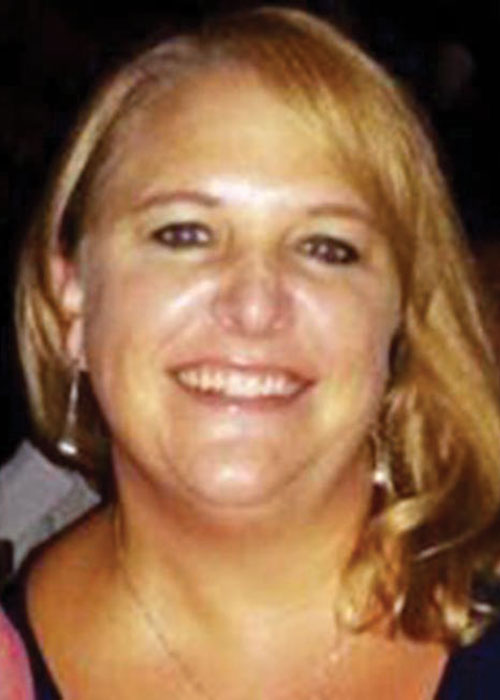
Toni Kula
U.S. Embassy Santo Domingo
Nelson B. Delavan Award for Exemplary Performance by an Office Management Specialist
Toni Kula, this year’s recipient of the Nelson B. Delavan Award for Exemplary Performance by an Office Management Specialist, has made exceptional contributions to U.S. Embassy Santo Domingo as the ambassador’s OMS and through her extensive volunteer work to support the embassy community.
Ms. Kula’s contributions go well beyond her job description, and so does her engagement—whether she is visiting a local orphanage, organizing yoga classes for her colleagues or spending a Saturday ensuring that the mission’s holiday children’s party takes place without a hitch. Her enthusiastic commitment to exceptional service to all makes her an ideal recipient of the Nelson B. Delavan award.
Toni Kula has built excellent relationships with colleagues across agencies, creatively streamlining processes and establishing clear missionwide guidelines for front office interactions. She shows remarkable flexibility in a very challenging office and has consistently displayed high quality performance, excellent detail-oriented work and superior initiative while skillfully performing all tasks.
For example, in April 2015 the embassy hosted a high-profile celebrity for a personal, immigration-related issue. This VIP visit entailed special processing by several entities within the embassy, including U.S. Citizenship and Immigration Services, the consular section’s Immigrant Visa Unit, public affairs and the front office. Ms. Kula’s coordination and planning prior to and during this special event was unsurpassed. The visitor and his staff were very highly complementary of the professionalism and efficient handling of the process. She deserves the credit for ensuring the logistics were flawless—something her colleagues have come to expect when she is in charge.
Ms. Kula merits recognition above and beyond the duties required of an OMS. Not only does she directly advance U.S. foreign policy interests through the high caliber of service she renders on behalf of the executive office, she also devotes time and care to enhancing mission morale and the welfare of all of its employees and family members. She consistently volunteers, organizes and participates in every special project and event conducted for the benefit of the embassy community and the public.
As the embassy’s Federal Woman’s Coordinator, Ms. Kula organized a widely praised film screening that highlighted the serious problem of sex trafficking in the Dominican Republic. The screening—held in partnership with the public affairs and the political/economic sections for a broad cross-section of Dominican students, entrepreneurs and government officials—featured the country’s attorney general. The event generated extensive positive media coverage and inspired similar events in other areas around the Dominican Republic.
On another occasion, following a spate of high-level visitors and generator outages that had shut down operations for days and brought down mission morale, Ms. Kula organized an afternoon ice cream social for employees, in which senior management, including the deputy chief of mission and ambassador, scooped ice cream and served cake to express appreciation to the hundreds of embassy employees. Even though it was an internal embassy event, it received positive coverage in the local press and social media.
Ms. Kula’s care for the FS community also extends to its four-legged friends. As the founder of Patitas Unidas (United Paws in English), an embassy group focused on animal care and rights, she was instrumental in arranging veterinary care and finding homes for several stray dogs that turned the embassy into their shelter of choice. She also actively participated in the American Embassy Recreation Association Board, coastal beach cleanup, environmental committee, gym committee and so many other endeavors at post.
Ms. Kula displays an enthusiastic attitude toward each and every task. She has excellent interpersonal skills and is well liked and respected by her peers and colleagues. Her flexibility and cheerful willingness to do any task that advances mission goals and the wellbeing of the embassy community is to be applauded. Her can-do attitude, organizational skills and professionalism are vital to the smooth operation of the many intricacies each task entails. She builds great teams and shows leadership in the front office and beyond. She is a role model and inspiration for all.
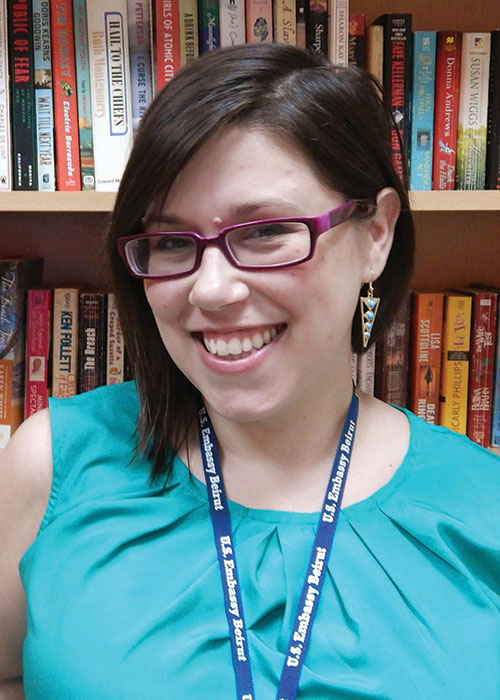
Sara Locke
U.S. Embassy Beirut
M. Juanita Guess Award for Exemplary Performance by a Community Liaison Officer
Community Liaison Officer Sara E. Locke is the recipient of this year’s M. Juanita Guess Award for Exemplary Performance by a Community Liaison Officer for her outstanding leadership, dedication, initiative and imagination in assisting the employees and family members of U.S. Embassy Beirut.
Embassy Beirut enthusiastically nominated Ms. Locke, stating: “There is probably no other person in the mission who receives as much unanimous, universal praise as Sara for her efforts in turning around the rapidly deteriorating morale at Embassy Beirut.” Working with members throughout the community, her leadership has dramatically improved morale through innovative programs and activities, re-establishing U.S. Embassy Beirut as a post actively sought by Foreign Service bidders. Her tireless efforts on behalf of employees and family members are absolutely impressive.
When Ms. Locke arrived at post in 2014, morale among embassy staff was plummeting and curtailments were increasing at an alarming rate. She recommended to the ambassador that post conduct a morale survey, and then coordinated closely with him and the regional psychiatrist (RMO/P) to figure out how the downward spiral could be reversed. She not only designed and conducted the first survey, but after a very insightful analysis, which she presented to the ambassador and deputy chief of mission, Ms. Locke created an “Action Committee” to respond to the complaints and suggestions.
As a result, many policies and practices on the compound were changed, and new innovative ideas were brought forward and implemented. Thanks to Ms. Locke’s efforts, the situation has improved so much that employees are now requesting extensions to their assignments, and positive responses to a recent morale survey are at an all-time high. The fact that community members now feel they are being heard has had a profoundly beneficial impact on life on a small compound at a high-threat post with very restrictive security requirements.
Ms. Locke has continued doing surveys every six months to measure changes and to solicit ideas on how to continue improving morale, but her influence extends beyond Beirut. Former U.S. Ambassador to Beirut David Hale (who had been in Beirut when Ms. Locke created the survey) wrote to Ms. Locke from his new post: “I owe you such a debt of gratitude and would appreciate any advice on how to maximize this product here,” he said, requesting that she share her thoughts and recommendations with his deputy chief of mission and management section.
Beirut is a challenging place in the best of circumstances: terrorist threats are real, security restrictions limit off-compound movements and permanent employees live and work in cramped, dilapidated facilities. The role of the CLO as an advocate for community members is absolutely critical, and Sara truly embraces it. She lobbies hard on behalf of family members to find rewarding jobs in the mission. She includes spouses in all aspects of embassy life, from social events to emergency preparations. She recently hosted a series of seminars on evacuation planning and community resources for the mission. She is the person many individuals turn to for support and guidance.
Just one example: immediately after a suicide bombing in downtown Beirut in November 2015, just a few miles from the embassy compound, Ms. Locke reached out to the embassy community to ensure accountability and reassure colleagues. When things quieted down, she developed a variety of innovative programs, trips and activities to allow employees to experience Beirut, always working closely with the embassy’s regional security section to stay within the constraints of strict security parameters. She helped increase the number of trips off compound to grocery stores, and then helped put in place a very popular weekend shopping shuttle. This change alone significantly improved morale and gave embassy employees a whole new perspective on life here; previously, only one trip off the compound per week was permitted.
Ms. Locke is extremely creative, constantly seeking out new entertainment venues and cultural events (concerts, museums, restaurants, wine tastings, food festivals), always coordinating well in advance with the regional security officer. She put together a long list of embassy recreational events, including scuba diving, hiking, skiing and snowshoeing. She also organizes a multitude of events for embassy families on the compound. She is an invaluable resource to everyone in the mission.
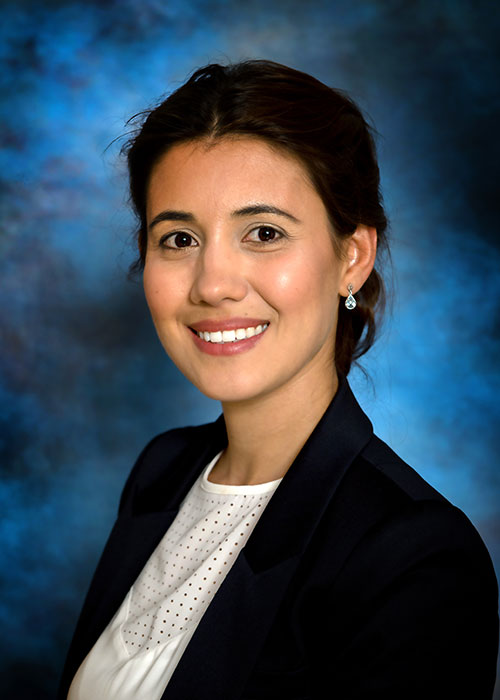
Berna Keen
U.S. Embassy Dhaka
M. Juanita Guess Award for Exemplary Performance by a Community Liaison Officer
Runner-Up
Berna Keen, runner-up for this year’s M. Juanita Guess Award for Exemplary Performance by a Community Liaison Officer, is recognized as an exemplary CLO by her colleagues at U.S. Embassy Dhaka during what has been a turbulent period of terrorism and violence in Bangladesh. Her conscientious and compassionate approach to each and every member of the mission, the creativity she employs in bringing people together and her exceptional talent for organization has substantially increased morale at post.
A rash of “hartals,” violent political demonstrations, in 2015 crippled embassy operations in Dhaka. Ms. Keen experienced this violence firsthand when a vehicle she was riding in was hit with an explosive device. Incredibly, this only strengthened her commitment to her work. She communicated with everyone in the mission on shelter-in-place days, sending out ideas for activities to do with kids stuck indoors. She became a key voice on the Emergency Action Committee and created an EFM email list, subsequently added to the Global Address List, ensuring that security messages were received by everyone in the mission simultaneously.
With all of Dhaka on edge after a series of murders committed by Al-Qaida-allied fanatics and members of the so-called Islamic State group, embassy personnel were restricted to a two-square-mile area, could not walk outside and had a 10 o’clock curfew. School buses ridden by embassy children were accompanied by an armed police escort. Outside entertainment was off-limits to embassy personnel. In this tense environment, Ms. Keen brought the embassy community together, planning a staggering number of events—nearly 90 in 150 days—despite the fact that her office was understaffed.
Ranging from wine and cheese parties to pet playdates, she successfully provided people with an outlet for normal social activity. She brought the local market to the embassy, snagging pearl vendors, antique dealers and rug and clothing sellers to sell to the embassy community. Her continual reminders to the EAC on the importance of communication has kept the community well-informed and engaged during this trying time.
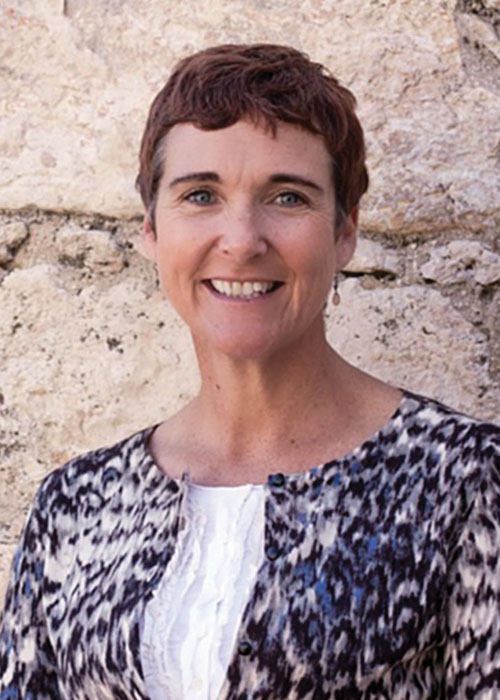
Shawn Akard
U.S. Embassy Amman
Avis Bohlen Award for Exemplary Performance by an Eligible Family Member
Shawn Akard, a community builder who has tripled outside embassy employment for eligible family members (EFMs) and also volunteers an immense amount of her time at U.S. Embassy Amman, is the recipient of this year’s Avis Bohlen Award for Exemplary Performance by an Eligible Family Member.
Ms. Akard created and implemented the Appointment Eligible Family Member hiring mechanism at the USAID Mission in Amman, through which select positions are advertised to EFMs only; this saves the Bureau of Human Resources time and money, and decreases competition for family member employment at post. The State Department plans to replicate this process at other posts.
Ms. Akard also co-founded the implementation team for the United Nations Local Expatriate Spouses Association in Amman, a networking group open to spouses of all U.N. agencies and embassies, as well as international and local nongovernmental organizations (NGOs). And she co-founded a professional development group at the embassy, which identifies employment and volunteer opportunities and advocates for additional professional training for EFMs. As a result of these efforts, EFM employment in Amman tripled in three years.
Ms. Akard has also devoted herself to volunteer work aimed at meeting local needs. In the face of alarming youth unemployment figures in the country, Ms. Akard has run more than 100 workshops for Jordanian university graduates on such soft skills as interviewing and resumé writing, for which students have expressed deep gratitude. She also works with NGOs across Amman, raising money for those that are deeply necessary but struggling to survive.
One example is Nour Al Bakara, Amman’s first community garden project. For two years Ms. Akard led fundraising efforts and advised members on proper planting procedures, ultimately ensuring the garden, one of the few safe spaces in Jordan for people with mental and physical disabilities, could remain open. She has volunteered, as well, with the Anzeh Aziza Cleanup effort, addressing sanitation issues due to overcrowding by developing anti-littering and environmental awareness campaigns aimed at school children.
Shawn Akard is the global employment adviser for the Near East Asia region, currently based in Amman, Jordan. Previously, she volunteered to write grants to fund nonformal education for Iraqi and Syrian refugees. She has worked as a preschool teacher, an addiction counselor for the Department of the Army and as a substance abuse counselor for adolescents.
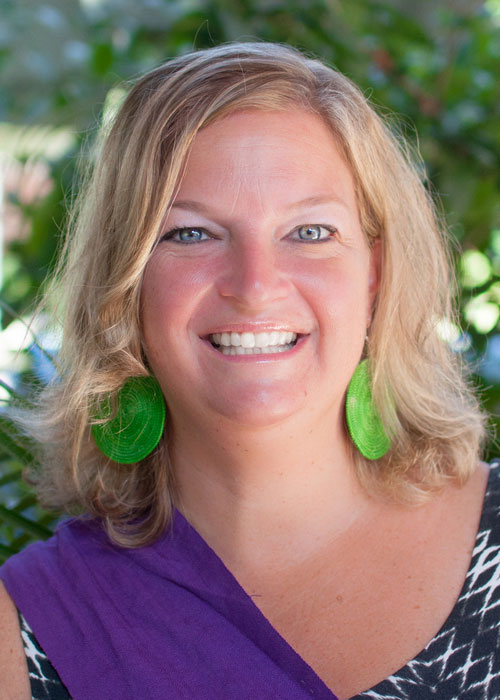
Amy Clutter
U.S. Embassy Accra
Avis Bohlen Award for Exemplary Performance by an Eligible Family Member
Runner-Up
Amy Clutter, the spouse of Air Force attaché Lt. Col. Brett Clutter and currently posted at U.S. Embassy Accra, is the runner-up for this year’s Avis Bohlen Award for Exemplary Performance by an Eligible Family Member.
Ms. Clutter has twice been elected president of the North American Women’s Association, an all-volunteer organization that she has been involved in during her three years in Accra, Ghana. NAWA offers a lifeline for the diplomatic, expatriate and local community in Ghana, serving 400 people from more than 50 countries, and improving women and children’s lives in Ghana. Ms. Clutter is the embodiment of that mission, meeting critical needs and stimulating progress in Ghana.
When she took over in 2014, NAWA was in transition—membership was stagnant at 200, and much of its leadership had recently relocated. She recruited a new board, formalized responsibilities and developed a strategy for the organization’s future direction. NAWA has since doubled its membership, becoming become far more diverse and inclusive.
Ms. Clutter leads the NAWA board and committees in organizing cultural, social and educational events for the expatriate community. The heart of the organization, however, is its charitable outreach across the country. NAWA has participated in dozens of grass-roots projects, including constructing an information technology wing in a secondary school, providing latrines for elementary schools, digging wells in two rural villages and purchasing sewing machines for women across Ghana. Financial support for these efforts comes from the “No Worries” guidebook, written by NAWA members to help expatriates thrive in Ghana. Ms. Clutter spearheaded fundraising efforts to cover the total printing and marketing costs in advance of sales. Every penny from its sales has gone to charitable projects.
From 2014 to 2015, NAWA raised an unprecedented $25,000 for humanitarian projects related to healthcare, education and women’s empowerment—all enhancing U.S. relations with the local Ghanaian community. This was a 100-percent increase on previous totals. Ms. Clutter continues to generate inspiring new fundraising ideas, such as the international NAWA cookbook and the NAWA craft fair. She is the “go-to” person for countless individuals in the embassy and diplomatic community in Ghana.
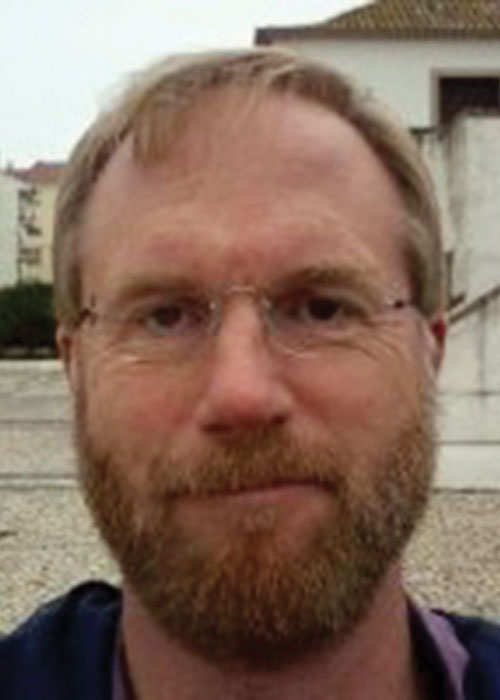
Karn ‘KC’ Carlson
U.S. Consulate General Nuevo Laredo
Award for AFSA Post Representative of the Year
Foreign Service Officer Karn “KC” Carlson was selected as the AFSA Post Representative of the Year in recognition of his contributions to AFSA’s understanding of concerns in the field, as well as his efforts to strengthen the post rep program in Mexico.
Assuming his duties as AFSA post rep in Nuevo Laredo in February 2015, Mr. Carlson engaged post management on a wide variety of issues affecting mission staff, including overtime policies and travel issues. In particular, he was extremely proactive and helpful in providing member input from several posts in Mexico on the changes to the danger pay policies introduced by the Department of State in September 2015.
Mr. Carlson’s thoughtful and articulate observations on the proposed danger pay changes was among the strongest input AFSA received from post reps at affected posts, and was important in discussions with State Department management. He pulled together definitions of terrorism in the U.S. Code and linked them to specific incidents in Nuevo Laredo; he outlined in specific quantitative terms how the changes would affect the income not only of Foreign Service employees, but also of eligible family members; and he made a compelling argument as to why AFSA should advocate for a change to the entry-level officer (ELO) bidding equity program.
In addition, Mr. Carlson’s initiative in drafting a periodic AFSA column for the CLO newsletter at post (which he also shares with other Post Reps in Mexico) was a strong demonstration of how AFSA post reps can best use their position to promote the “AFSA brand.” He not only got the AFSA column going with articles on divorce and Emergency Visitation Travel, but is also creating a backlog of articles for the CLO newsletter to publish after he departs to provide continuity while post selects a new rep and that person settles into the role. Recognizing, in hindsight, that the way he was selected as post rep was not ideal, he also took steps to publish the proper procedures so that his replacement will be selected in a more appropriate manner.
In sum, Mr. Carlson is exactly what AFSA hopes for in a post rep—someone who is in active touch not only with his fellow AFSA members, but also with post management and AFSA HQ, doing his best to share information and improve working conditions for his colleagues.
Ambassador (ret.) Ruth A. Davis received the 2016 award for Lifetime Contributions to American Diplomacy.
